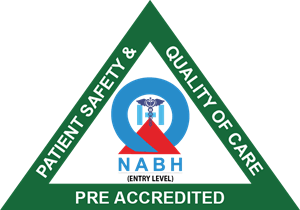- Home
- About
- Specialities
Centers of Excellence
- Facilities
- Procedures
Procedures
- Doctor List
- Health Packages
- Contact


In minimally invasive surgery, we use a variety of techniques to operate with less damage to the body than with open surgery. In general, minimally invasive surgery is associated with less pain, a shorter hospital stay and fewer complications.
Laparoscopy — surgery done through one or more small incisions, using small tubes and tiny cameras and surgical instruments — was one of the first types of minimally invasive surgery. Another type of minimally invasive surgery is robotic surgery. It provides a magnified, 3D view of the surgical site and helps the surgeon operate with precision, flexibility and control.
Continual innovations in minimally invasive surgery make it beneficial for people with a wide range of conditions. If you need surgery and think you may be a candidate for this approach, talk with your doctor.
Surgeons perform many minimally invasive surgeries on specific parts of the body, including:
Adrenalectomy to remove one or both adrenal glands
Brain surgery
Colectomy to remove parts of a diseased colon
Gallbladder surgery (cholecystectomy) to relieve pain caused by gallstones
Heart surgery
Hiatal hernia repair, sometimes called anti-reflux surgery, to relieve gastroesophageal reflux disease (GERD)
Kidney transplant
Nephrectomy (kidney removal)
Spine surgery
Splenectomy to remove the spleen
Minimally invasive surgery can also be used for more general surgeries, including the following:
Cancer surgery, for example, to destroy a tumor
Colon and rectal surgery
Endovascular surgery to treat or repair an aneurysm
Gastroenterologic surgery, including for gastric bypass
Gynecologic surgery
Neurosurgery
Orthopedic surgery
Otolaryngology (ear, nose and throat surgery) head and neck surgery
Thoracic surgery, such as video-assisted thoracoscopic surgery (VATS)
Urologic surgery
Robotic heart surgery
| -- | -- |
Get to know our dedicated group of board certified doctors with exemplary qualifications, here to assist you on your healthcare journey.
These are stories that involves resilience, persistence & personal strength. Overcoming odds, difficulty and of course challenges of health, these stories ought to inspire us to look beyond the difficulties because there is always more to our lives than just challenges


You can choose to walk in to meet our doctors in their OPD or better still to book your appointment on line. You don’t need to wait. We have specialists in almost all fields of modern medicine.
We have rendered services in Homoeopathy for over 5 decades.
© copyright 2021 | All rights reserved